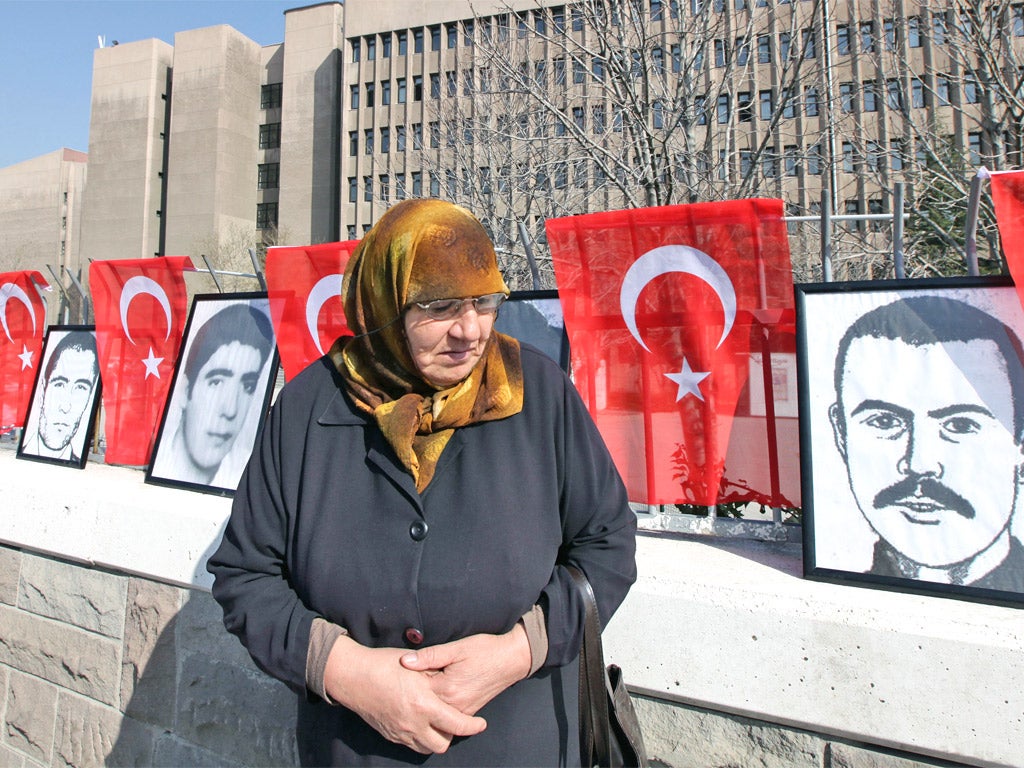Turkey's former president goes on trial for 1980 coup
Kenan Evren and former air force chief could face life in jail over claims of torture and executions

Your support helps us to tell the story
From reproductive rights to climate change to Big Tech, The Independent is on the ground when the story is developing. Whether it's investigating the financials of Elon Musk's pro-Trump PAC or producing our latest documentary, 'The A Word', which shines a light on the American women fighting for reproductive rights, we know how important it is to parse out the facts from the messaging.
At such a critical moment in US history, we need reporters on the ground. Your donation allows us to keep sending journalists to speak to both sides of the story.
The Independent is trusted by Americans across the entire political spectrum. And unlike many other quality news outlets, we choose not to lock Americans out of our reporting and analysis with paywalls. We believe quality journalism should be available to everyone, paid for by those who can afford it.
Your support makes all the difference.Turkey began the landmark trial of its ageing former president yesterday, who is accused over his roles in a bloody coup d'état more than 30 years ago.
Kenan Evren, 94, who is also a former military chief-of-staff, and the former air force chief Tahsin Sahinkaya, 87, failed to appear in an Ankara court for"health reasons," local media reported.
Fikret Babaoglu, a lawyer representing the victims of their alleged crimes, called for the men to be brought to the courtroom in a cage, even if they had to be confined to a hospital bed. "Evren was no less of a dictator than Mubarak," Mr Babaoglu said, according to the Hurriyet Daily News.
The prosecution of the two surviving leaders of the coup, which took place on 12 September 1980, is being heralded as a symbol of the advancement of democracy and justice in the country.
The two men face life imprisonment without the possibility of parole, the harshest sentence possible in Turkey, which abolished the death penalty in 2002. However, age and faltering health are likely to ensure that the men are not put behind bars. The Ankara prosecutor's office has said they can testify via video link.
For decades, the Turkish military considered itself the guardians of the country's secular founding values. Since 1960, it has four times ousted governments that it viewed unfavourably. Many Turks look up to the military as a means of protecting them against the threat of Islamic fundamentalism, and as a guiding force for the country.
Yet its degree of influence was considered to be preventing political and economic stability, and the European Union emphasised the need for civilian rule if Turkey's application for membership were to be successful.
Following the 1980 coup, martial law was declared, the constitution revoked, and political parties abolished. Half a million people were arrested. Torture was pervasive, and up to 50 people were executed by hanging. Evren ruled for almost nine years, during which time a new constitution was written that ensured that the coup's instigators were immune from future prosecution.
However, after the ruling Islamist-based Justice and Development Party (AKP) successfully passed a series of constitutional amendments in a 2010 referendum, the path to prosecuting the former coup leaders was opened.
In an act that would have been unimaginable only a few years earlier, hundreds of people who claimed to have been persecuted during and after the coup came forward to file legal complaints against the two men.
The AKP and opposition parties temporarily put aside their differences to take part together as the trial started yesterday. The court was packed with spectators and plaintiffs, despite the absence of the defendants.
"They took power, they did it by themselves, they did not ask anyone, this is not democracy," said Zekiye Kilic, a 31-year-old Turkish woman. "Now, with AKP, we have changed the rules. [Evren and Sahinkaya] deserve to be judged. What they did makes them guilty."
The popular ruling party was re-elected for a third term last June, with about 50 per cent of the vote.
Join our commenting forum
Join thought-provoking conversations, follow other Independent readers and see their replies
Comments